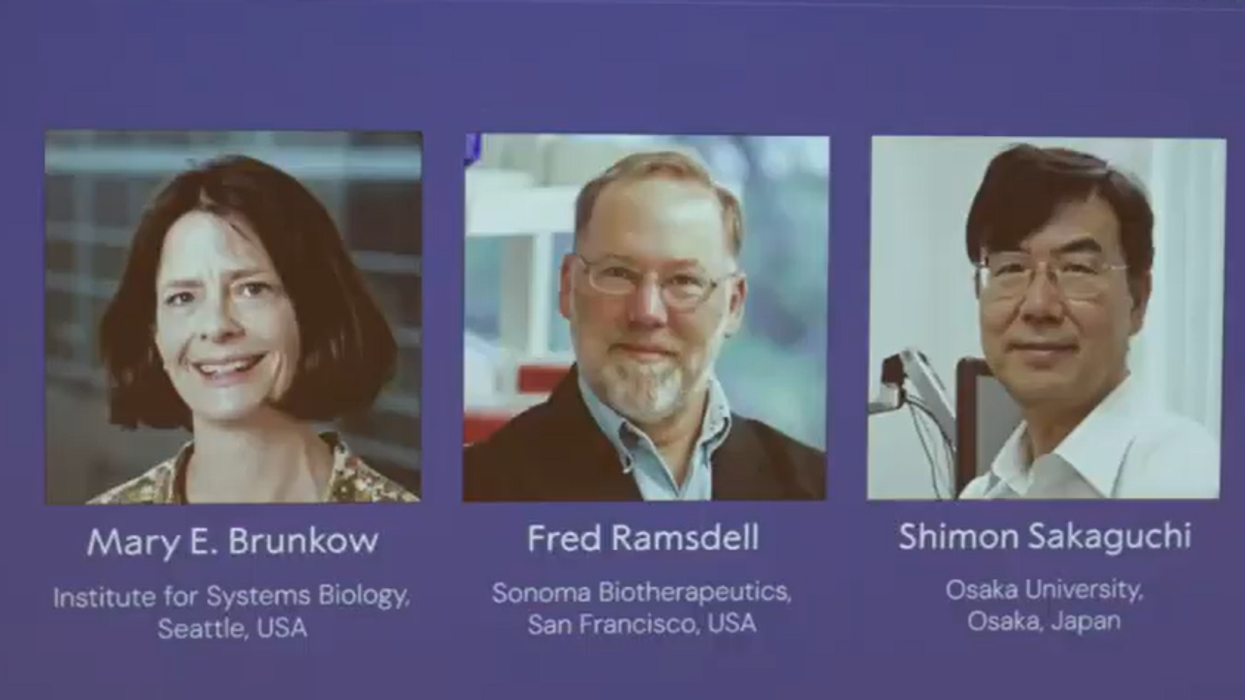Highlights:
- 2025 Nobel Prize in Physiology or Medicine goes to Mary E. Brunkow, Fred Ramsdell and Shimon Sakaguchi.
- The trio discovered regulatory T cells, which prevent the immune system from attacking the body.
- Their findings could lead to new treatments for autoimmune diseases, cancer, and transplant complications.
Immune system security guards identified
The Nobel Committee in Stockholm has awarded the 2025 Nobel Prize in Physiology or Medicine to three scientists for revealing how the immune system prevents attacks on the body’s own cells.
Mary E. Brunkow, Fred Ramsdell and Shimon Sakaguchi were recognised for their work on peripheral immune tolerance, identifying a class of immune cells known as regulatory T cells. These cells act as “security guards,” ensuring the immune system targets harmful pathogens without harming healthy tissue.
Breakthrough discoveries across continents
Japanese immunologist Shimon Sakaguchi, at Osaka University, first discovered regulatory T cells in 1995. He showed that the immune system requires an additional mechanism to stop it from attacking the body, using studies in mice and the thymus, the organ where T cells mature.
Americans Mary Brunkow and Fred Ramsdell built on Sakaguchi’s work in the early 2000s. They identified a gene, Foxp3, responsible for the development of these regulatory cells and linked mutations to IPEX syndrome, a severe autoimmune condition in humans.
- YouTube www.youtube.com
Impact on medicine
The committee highlighted the potential applications of the research, which could lead to:
- Treatments for autoimmune diseases
- More effective cancer therapies
- Reduced complications following stem cell and organ transplants
Thomas Perlmann, secretary of the Nobel Committee for Medicine, said Sakaguchi expressed gratitude upon hearing the news. Brunkow and Ramsdell were yet to be reached due to time differences between Sweden and the United States.
Background and legacy
Brunkow works at the Institute for Systems Biology in Seattle, while Ramsdell is co-founder of Sonoma Biotherapeutics in San Francisco. Sakaguchi’s initial discovery was later linked to their research, proving the Foxp3 gene governs regulatory T cell development.
Recent Nobel prizes in medicine have recognised breakthroughs in microRNA (2024) and mRNA vaccine technology (2023), highlighting the ongoing importance of molecular discoveries in human health.
The 2025 prize carries a cash award of 11 million Swedish kronor ($1 million).















